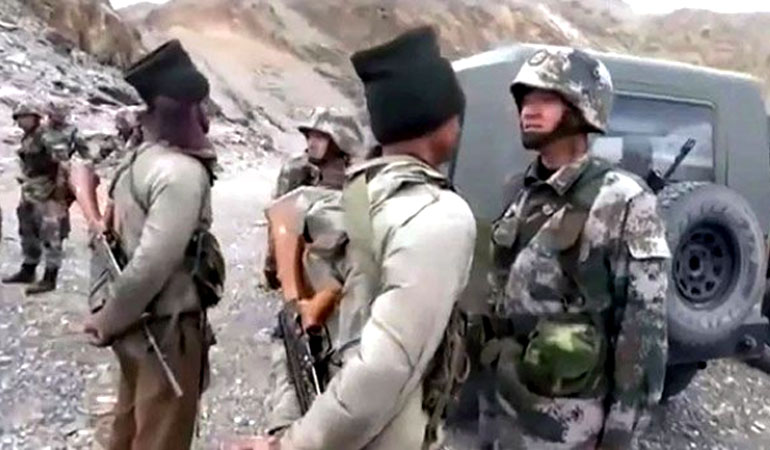
(TibetanReview.net, Jun12’21) – Calling China a bigger security challenge than Pakistan, India’s Chief of defence staff (CDS), General Bipin Rawat, has said Jun 11 that troop disengagement process between the two sides in eastern Ladakh had slowed down because of continued suspicion on both sides. But sources in the Indian security establishment have said an emboldened China was reluctant to resume talks and refusing to budge from territory occupied by it by transgression.
And given China’s steadfast refusal to vacate areas it had occupied, which gave rise to the current border crisis, Gen Rawat has said it had been communicated to Beijing that restoration of status quo in eastern Ladakh as it existed in Apr 2020 was the ‘bottomline” for India.
If that happens, there “will be some kind of belief in each other, satisfaction that it’s not likely to lead to further escalation,” reported the timesofindia.com Jun 12, citing an interview with a TV channel.
“I am quite sure both sides are looking to return to status quo ante,” he has said.
Gen Rawat’s statement came ahead of the Army commanders’ conference from Jun 16 to 18, which will be chaired by Army Chief General MM Naravane.
Gen Rawat’s view seems to be overly optimistic, for according to sources in the security establishment cited by a telegraphindia.com report Jun 12, China’s army was continuing to resist India’s demand for disengagement and troop de-escalation from the remaining friction points in Ladakh, and wanted India to accept the “new” frontier created by its transgressions.
The report cited retired generals as saying an emboldened China was refusing to budge from the Depsang Plains or Gogra and Hot Springs because India had conceded too much in the Galwan Valley and the Pangong Lake, retreating within its own territory while leaving the Chinese still entrenched within India-claimed lines.
The report quoted a defence ministry official as saying: “Under a pact in February, the Chinese had agreed to work towards a disengagement process for the Depsang Plains and Gogra and Hot Springs. But now they don’t seem interested at all — they appear to have gone back on their word.”
At their last “inconclusive” talks on Apr 8, China was reported to have repeated its claim about the occupied zones in the Depsang Plains, Hot Springs and Gogra being Chinese territory and asked Indian troops to retreat further within India-claimed lines, as at the Pangong Lake and the Galwan Valley.
“India played into China’s hands by agreeing to vacate the dominating Chushul heights on the Kailash Range first as part of the disengagement process at the Pangong Lake. That was a blunder,” a former lieutenant general was quoted as saying.





